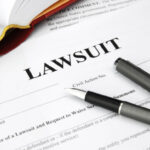Strict new safety rules for toys and other children’s products take effect next week, a move that has been applauded by parents and consumer advocates but jeered by industry groups as overly broad and a jobs-killer.
Beginning Tuesday, the law limits the amount of lead and phthalates — chemicals used to make plastic softer — allowed in toys and other products for children 12 and under. It passed with overwhelming bipartisan support in Congress last summer.
But the makers of clothing, bike parts, cloth diapers and other businesses complained that the law could cause massive job losses because of costly testing requirements. Librarians are upset too. Some have suggested they may have to ban children from libraries to keep them from books that are perfectly safe for kids. It’s doubtful that would happen, but the concern about the new standards and to whom they apply has stirred dire posts on blogs, Facebook and elsewhere.
Sen. Mark Pryor, D-Ark., blames Nancy Nord, head of the agency tasked with implementing the law, for creating confusion and panic about the real target of the law.
“They’ve had five to six months to get this together and give the industry some direction. I don’t know what they’ve been doing,” said Pryor, a sponsor of the bill that ushered in the new limits. “They didn’t like it when we passed it. They never helped us, and they’re not helping now.”
Pryor, along with Sen. Jay Rockefeller, D-W.Va., and Democratic Reps. Henry Waxman of California and Bobby Rush of Illinois, sent President Barack Obama a letter late Tuesday accusing Nord of bungling implementation of the law and calling for her to step down as acting chairwoman of the Consumer Product Safety Commission.
Nord, a Bush administration appointee, issued a statement Wednesday placing the blame on Congress for passing a sweeping law “without the funding requested by the Commission and with little time to address the complex issues presented by the new law.”
Nord has sought to provide some relief to small manufacturers. On Friday, CPSC announced that it had voted to delay for one year most of the testing requirements. The new limits for allowable lead and phthalates remain, but the requirement for the testing and certification slips to Feb. 10, 2010. That gives CPSC more time to consider exemptions, such as an exception for books.
But small businesses, such as the Cozy Baby Boutique in Kirkland, Wash., are still stressed and confused.
Owner Ann-Marie Speirs, who sells cloth diapers, says she has been running clearance sales and taking boxes of baby goods to charity at a loss of thousand of dollars. Speirs applauds the goal of getting lead out of toys, but thinks the law overreaches.
“The intent is good, but it’s highly unlikely that there’s lead in cloth diapers,” Speirs said in an interview. Even so, she said, she’s been forced to get rid of diapers and other products that haven’t yet been certified as lead-free by the manufacturer.
Passed in the wake of a record number of toy recalls, the law sets out a series of dates with specific limits for lead and phthalates. Children’s products containing more than 600 parts per million of lead may not be sold under the new standard. That limit could drop to 100 ppm if CPSC determines that’s feasible. Products with certain phthalates over 1,000 parts per million also would be banned.
Lead poisoning can cause irreversible learning disabilities and behavioral problems. Phthalates have been linked to reproductive defects and other health problems.
____
On the Net:
Consumer Product Safety Commission: http://www.cpsc.gov
Was this article valuable?
Here are more articles you may enjoy.

 Supreme Court Allows More Transport Workers to Bypass Arbitration and Sue Employers
Supreme Court Allows More Transport Workers to Bypass Arbitration and Sue Employers  Report: Vehicle Complexity, Labor ‘Reshaping’ Auto Insurance and Collision Repair
Report: Vehicle Complexity, Labor ‘Reshaping’ Auto Insurance and Collision Repair  Poll: Consumers OK with AI in P/C Insurance, but Not So Much for Claims and Underwriting
Poll: Consumers OK with AI in P/C Insurance, but Not So Much for Claims and Underwriting  Justice Department Preparing Ticketmaster Antitrust Lawsuit
Justice Department Preparing Ticketmaster Antitrust Lawsuit 